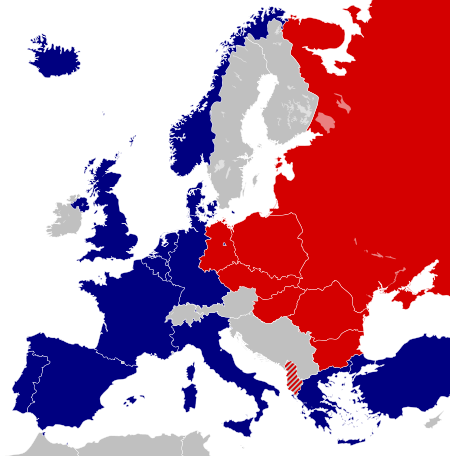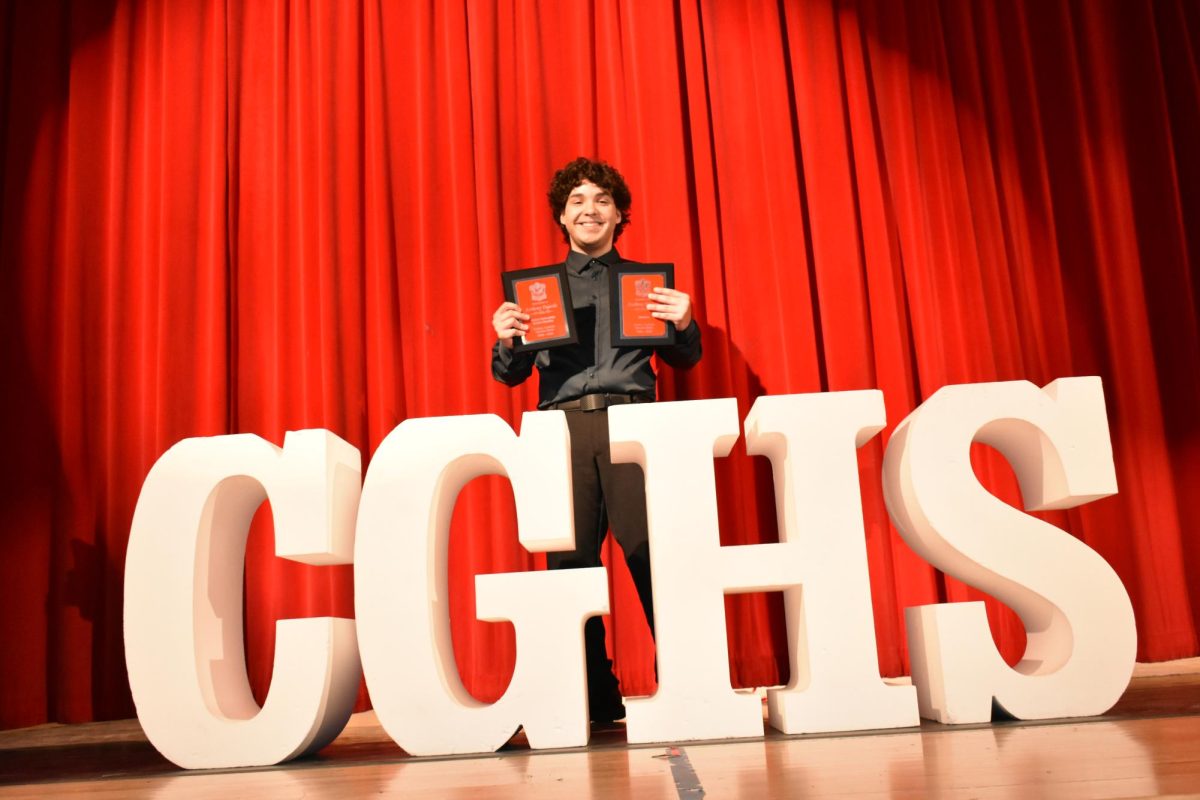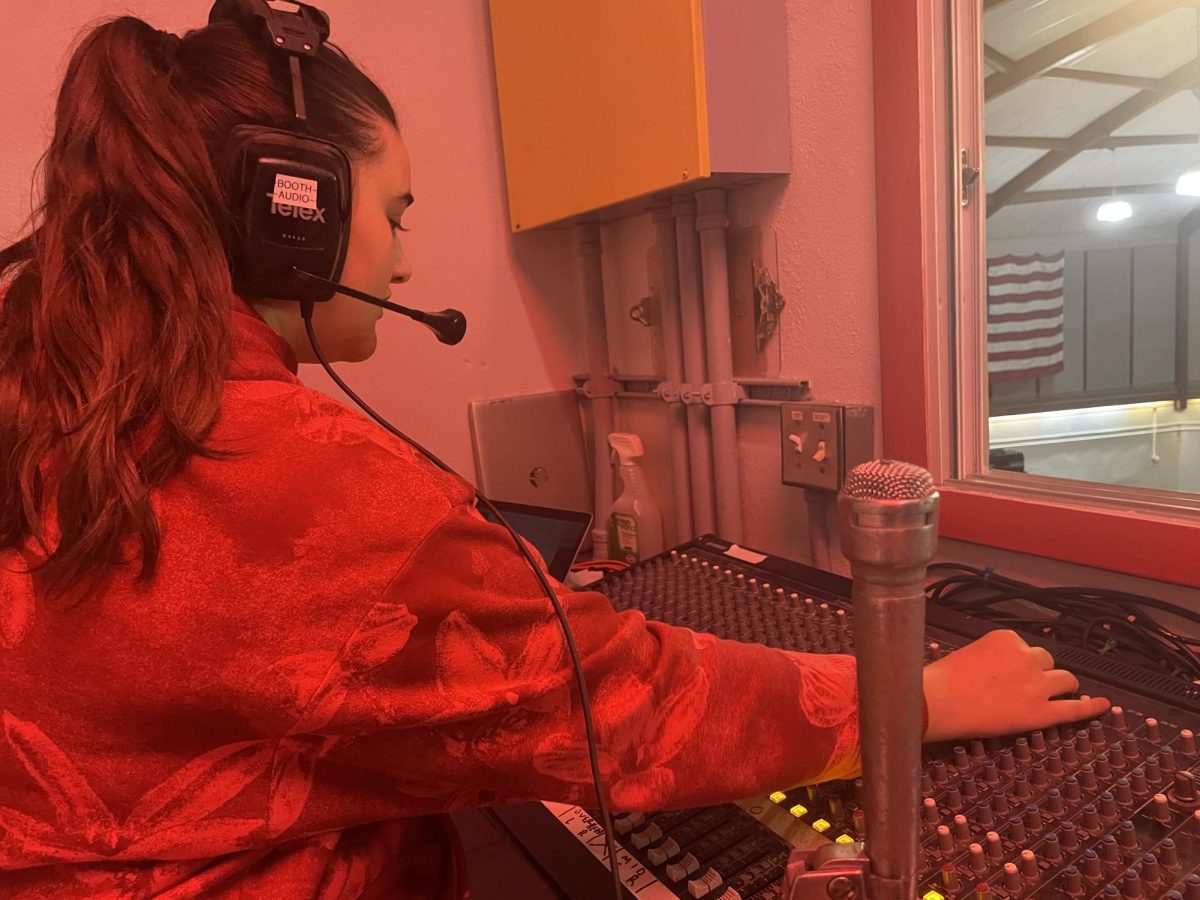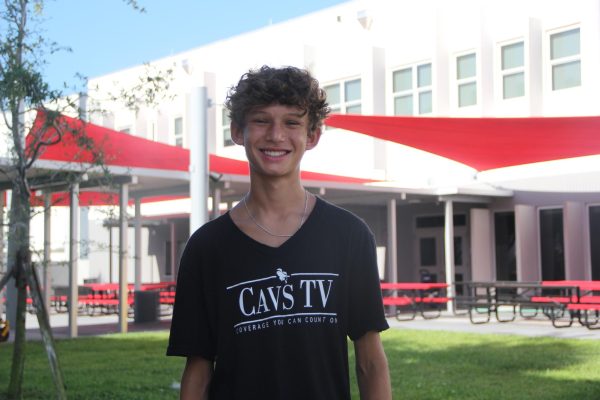Cold War II: Russian Revanchism

Shown above: NATO members in blue, Warsaw Pact (Soviet-affiliated) members shown in red. NATO was formed in 1949 to function as a Soviet retardant; ironically enough, it faced no physical military confrontations as an organization until 1992 in Bosnia-Herzegovina.
Sep 15, 2014
Throughout the latter half of the 20th century, diplomacy was beset by the conflicting ideologies of communism and capitalism; the United States, by assuming an anti-communist stance through the Truman Doctrine and NSC-68, managed to totally polarize the world between those supporting the Americans and those supporting the Soviet Union (USSR). The resultant Western and Eastern blocs that formed in Europe have lingered to this day, and continue to cast a shadow over modern geopolitics. The collapse of the USSR and the subsequent formation of the Commonwealth of Independent States in 1991, however, have not prevented the new Russian Federation from veritably dominating the ex-Soviet states, and much like the United States and Latin America’s relationship in the early 20th century, the Federation has managed to keep her former member states fiscally and politically dependent.
As one may have learned in United States or European History, the North Atlantic Treaty Organization (NATO) is a military alliance formed in 1949 between America and her allies to enforce former President Truman’s policy of containment. According to Truman, it was imperative that communism not extend beyond its current borders (namely, the USSR and China); NATO was the principal vehicle to facilitate this policy. However, following the rise of the Solidarity movement in Poland and the subsequent collapse of communism (and the Berlin Wall) in eastern Europe, NATO quickly began to spiral into a vortex of declension and ineffectuality.
“NATO, as a supranational defense organization, is irrelevant in the post-Cold War era. It is a defense organization with no one to defend against, nor any potential threat with the exception of the Middle East, and North Korea – both of which not NATO but individual countries have taken stances against,” junior Joseph Villafañé said.
It may be argued that the post-Soviet fiscal shock that caused the Russian economy to convulse under former President Boris Yeltsin might have slowed Russia’s renascence. Nonetheless, the West’s old adversary has only grown stronger in the wake of the Soviet implosion. Earlier this year, the Slavic nation annexed the Black Sea peninsula of Crimea after sociopolitical dissension in Ukraine (dubbed the “Euromaidan”) toppled the pro-Russian government of former President Viktor Yanukovych. Clashes between parliamentary forces and eastern Russian separatists, which started several months ago, have incited what has been considered by many to be the most contentious East-West standoff since the terminus of the Cold War.
NATO has responded to such insouciant, unsavory aggression with superficially bellicose rhetoric. Instead of taking a stand for one of its allies and working pragmatically towards a legal solution, the organization has elected to slap Mother Russia on the wrist. Not, of course that the organization has much of a choice. Xenophobia and conservative populism (similar to fascism), like the Bubonic Plague, have spread alarmingly fast through Western Europe, more quickly so in the United Kingdom (UK) and France. The United Kingdom Independence Party (UKIP), one such populist party, has taken the UK by storm, and recently in the European Parliamentary elections, UKIP managed to eclipse the ruling center-right Tory Party. The introduction of radically xenophobic, Euroskeptical MEPs into the Concert of Europe, and the consequential individualistic nationalism that has accompanied them could possibly herald the coda of the American concerto of international cooperation.
In addition, the US has managed, by virtue of her inherently myopic foreign policy and chronic superiority complex, to completely ostracize herself from the geopolitical scene. With the of exception of David Cameron, the UK’s current, rather servile Prime Minister, European leaders are becoming increasingly disillusioned with the State Department’s double standards and predilection to dictation, especially after the tapping of German Bundeskanzlerin (Federal Chancellor) Angela Merkel’s personal cellphone.
Conjointly, 30% of European natural gas, the majority of which flows through Ukraine, is supplied by Gazprom, a Russian petroleum corporation that is almost completely controlled by the Russian government. If Russian President Vladimir Putin were to coerce the rubber-stamp Duma (Russian legislature) into voting to cut off the gas supply in retaliation to European interference in the Ukrainian civil war, the majority of the organization would inevitably experience an energy crisis.
Ergo, NATO is doomed to defeasibility, concussed by contact with a BRIC. However, instead of working together as allies to find an effective strategy in dealing with the Russian menace, the US and EU have elected to sanction Russia individually. It is self-evident, nevertheless, that the Federation remains unaffected by the uncoordinated sanction effort; the Duma recently approved a ban on imported chicken from the United States in response. While it may seem frivolous and paltry, the second biggest importer of US chicken, coincidentally, is Russia, so in sooth, President Putin’s revanchist economic stratagem happens to be significantly more effective than his American counterpart’s. This fiscal war is occurring on the bank of the Somme, and President Obama is fighting like the British.












